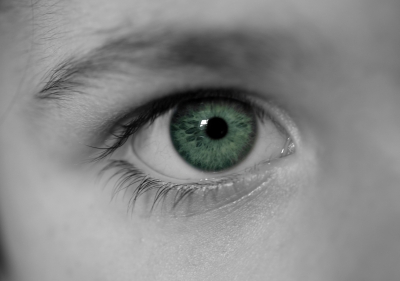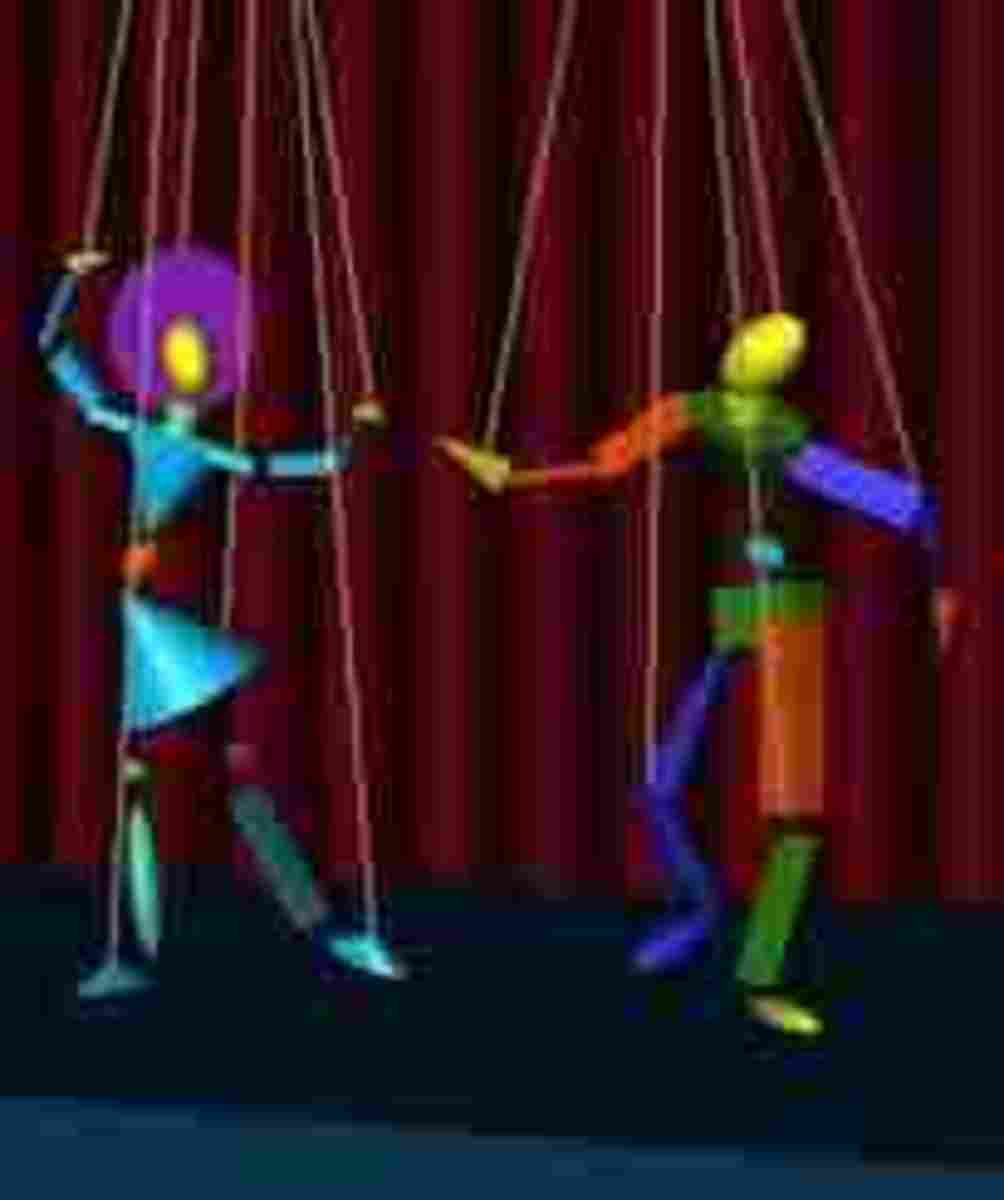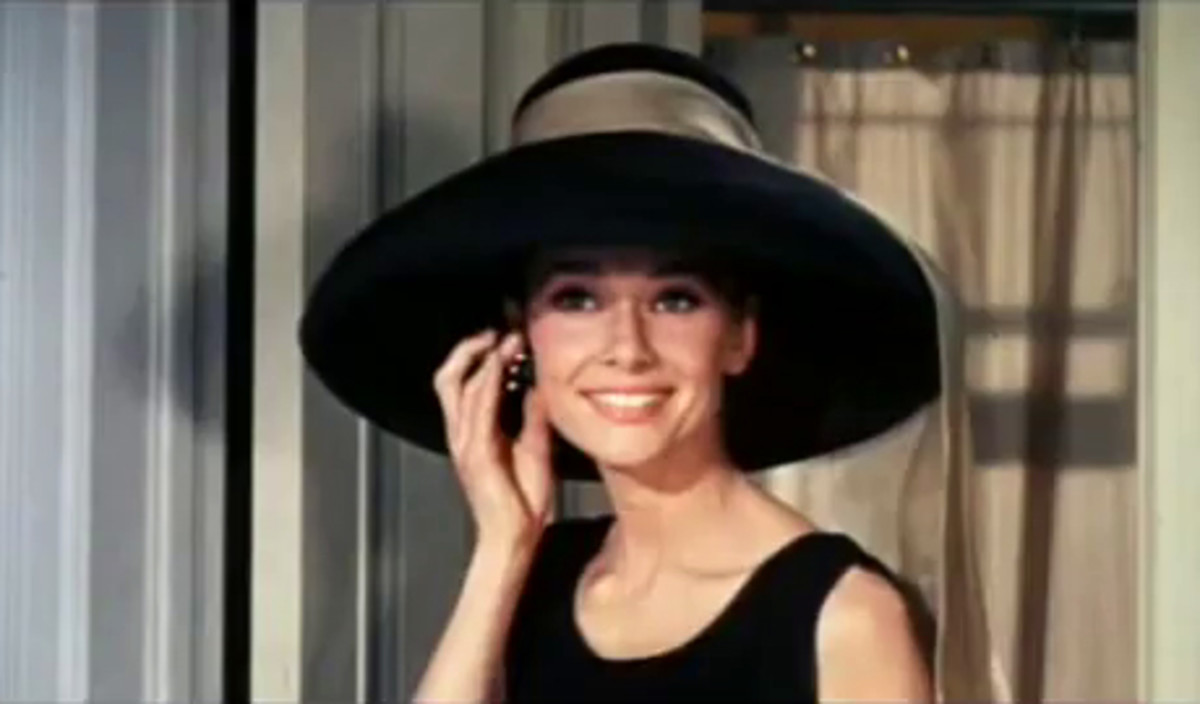- HubPages»
- Health»
- Mental Health»
- Emotions
How To Be Happy and Appreciate the Simple Things in Life
Happiness......
It is, perhaps, the ultimate quest in life. After all, almost every goal we ever have - every ambition; every dream; every desire - is, in our minds, part of the journey to achieve this state of being. There have been many debates over what the definition of 'happiness' actually is, and how to come about it. There have been countless self-help books and articles written about it over time, yet in the end our search for happiness is something we can only do alone.
But how far do we actually have to search? Some people spend their entire lives trying to achieve their idea of happiness, yet many never truly find it. Some people have a plan - if they succeed at their chosen career; buy a certain house in a particular location; start a family - then happiness will surely follow as par for the course.... But, as John Lennon said way back in the seventies, 'Life is what happens to you when you're busy making other plans.'

Living in the Present
It is a very wise quote. As we live through each day, carrying out our necessary tasks and responsibilities whilst at the same time dreaming of something better, we would do well to remember that in life all we ever truly have is the present moment. Everything in the past is gone - we can remember it with fondness or even bitterness, but it is not the here and now. The future is yet to come, nothing but pie in the sky. We can't predict the future, no matter how much we might think we can. Whilst we can work towards goals and dreams (and we should), and whilst reminiscing over the past can bring us warmth and put a smile on our faces, if we really want to live our lives with contentment then we have no choice but to live in the moment.. whatever our circumstances.
Children are so adept at this - the younger they are the more fully they experience the present moment. Unfathomed by restraints of time and responsibility, they observe quirky, obscure things most people wouldn't even notice - a funny insect on the pavement; a stone with a 'face' on; the faint shape of the moon waiting for impending darkness. They see humour when everyone else is serious, setting them off into uncontrollable giggles. They see moments to love, when everyone else is busy. Small children actually see life, rather than just pass on through with blinkers on. Life is full of magic and wonder and amusement. Not being concerned with the time on a clock face is sometimes a blessing, for it sets one free from the incessant pressure of 'routine'. Small children laugh when they want to and cry when they want to. They don't mind 'wasting time' on all those little things that have no other purpose except satisfying a need for fun and curiosity. In fact, they are usually the very opposite of many adults, who spend all their time doing things they feel they have to, and very little enjoying those small things they love.
I always like to think of life as a snapshot of many small moments, strung together to make the whole. Overall, the more enjoyable moments that a person experiences, the happier their life will be. As we look back on our lives, through our memories, what are the little snippets that really stand out? In hindsight, they are often not what we thought they would be. So often we do not realise it at the time, yet our happiest memories are built from the simplest interactions, rather than from great achievement. Spontaneous laughter with friends; a beautiful day with our children; a homemade gift on Mother's Day; simple times spent with family and those we care about. For most parents, when asked, the very best memory of all is the birth of their children - the beginning of a journey of love and care and the strongest of human bonds.
In life, even the tiniest pleasures can brighten our day. Walking down the road and really seeing the spring blossom on the trees; the smile of a stranger who bothered to chat at a bus stop on a rainy day; a young child giggling with abandon at nothing much. Happy moments arise when we let beauty into our hearts, no matter how big or small it may seem to be. Often, as I stand in the kitchen looking out into the garden, I catch sight of the little robin that pops back and forth to the bird feeder and somehow it is enough to raise my spirits. For even when we think we have reached our goals; succeeded in our dreams, we can only experience true happiness if we really notice and absorb the beauty that surrounds us. In the end, no matter what path we are on, it is the journey rather than the end destination that really matters. Every moment; every interaction; every new day is a chance to experience happy feelings.
Imagine, for instance, walking through a busy town where nobody notices you; where someone lets the door go in your face; where the shop assistant is robotic and unsmiling. Then imagine the opposite scenario - someone holds the door open and exchanges a few words; the shop assistant is welcoming and engaging and asks about your day. The very simplest social interactions can make for a happier day and lift our hearts just enough to add a little bit of sparkle to an otherwise uneventful day.
Maybe we might think that communication from other people, or lack there of, is out of our control. However, in this world we often get back what we give. If we smile at someone, they are more likely to smile back at us. If we talk to someone, they are more likely to offer conversation in return. If we are open and give a little bit of ourselves to those around us, no matter how small and insignificant it may seem to be, other people will do the same for us. You reap as you sow, so to speak.
Acquistion and Happiness
Perhaps one of the main obstacles many of us face is the connection we make between acquistion and happiness. We might look around our house and see much that needs attending to. We think life would be a good deal happier if we moved into somewhere bigger; better. We look at celebrities and wish we were someone else. We would feel better about ourselves if only we were thinner; had better skin; a different hairstyle; more money; extra possessions; better clothes; a better job; a more exciting existence. We feel as though our life is 'wasted' - perhaps we just don't feel we have become the person we aspired to be. This kind of feeling becomes particularly prevalent in mid-life. Young people can afford a little procrastination - it can seem as though the world is at your feet, waiting for you to step out and grab it. If only it was so easy - just think how many of us reach our forties having never fully succeeded in our career goals. Time is not in such generous supply as it once was - and our goals, once gleaming so brightly, now seem out of reach. Our own mortality suddenly smacks us cruelly in the face. We realise, with startling clarity, that we may never live the life we thought we would. Or perhaps we have succeeded in our career goals, but don't seem to have the time or spirit for anything else. Whichever way around it is, we don't feel happy. Dissatisfaction and even depression can seep in.
So many of us live within societies which appear to view acquistion as one of the prime definers of happiness. Subtle messages tug at us from early on in our lives. Television adverts paint pictures of the kind of person we are told we should aspire to be. Even children are taught that achievement is the key to future happiness. Whilst success in a career that we are passionate about can be very rewarding and whilst doing one's best in life is surely a worthy path to take, somehow the simple pleasures in life - those little things that really make our hearts soar and nourish our spirits - are missing from the equation. However, we can be so busy chasing dreams and goals that we almost forget to look for those little things altogether. We are too tired, too stressed, too occupied with everything else that we assume is more important. The only problem is, that without those special moments - those little things that nourish our hearts and touch our emotions - everything else we achieve can seem unfulfilling.
Even when we set ourselves high goals in life, we should never step away from the here and now. High goals are all very well, but life is unpredictable and can hit us with the unexpected. If we are always looking to the future without living in the present, what happens if the ground is suddenly pulled from under us for whatever reason? Life does not show us what is around the corner, and not one of us can ever know quite when our time will come. To live a really happy life, we must be mindful of appreciating each and every day and making sure that we make the most of everything that we have, right here and now. Think of every day as a whole new life and try to fill it with as many good moments as possible.


Think of it this way - if achieving goals and possessions is really the key to happiness, what about the other half the world - those who live so simply and yet can still be found with joy and serenity on their faces? I have the most beautiful book in my bookcase - Buddhist Offerings, 365 Days. It is a book of photographs from far-flung places like Tibet and Nepal, accompanied by inspirational quotes. The quotes, from the likes of the Dalai Lama and Gandhi, are spiritually uplifting and profound. The photos depict the lives of those who live simplistic, yet spiritually nourished lives - the quotes are for the whole world. You do not have to be a Buddhist to own this book. The simple, yet deep wisdom is for everyone, from any place and any background. And the images suggest that those living in the most basic conditions, yet with deep love, an understanding of humanity and strong family bonds can and do live with a high level of happiness. In fact, as long as basic needs such as food, water, shelter and freedom are met, then a person living a very simple life has just as much chance of reaching happiness as an affluent person. This is because, after satisfying these basic needs, the elements that promote true happiness are not elusive to any one type of lifestyle but can be found anywhere. Incidentally, a previous report on happiness indicates that Bhutan, in the Himalaya's, was the first country on earth to consider the happiness of inhabitants as an important part of government policy.
In order to find true happiness in life, we have to disassociate ourselves from making a connection between possessions and happiness. In a society that constantly bombards citizens with the message that happiness can easily be bought using a credit card in a shopping mall, it can be more difficult than one might think to cut such subtle influences from our minds. Today's children in the West are growing up knowing nothing else. Not only that, but most of us live in societies where we really do need a certain amount of 'things' in order to maintain a manageable standard of living. Where we live does undoubtedly place demands upon us - we still do require possessions and have bills to pay, etc - and yet, it is still important that we do not confuse material possessions with happiness.
After all, if life is about nothing more than finding happiness through chasing career goals and monetary success, then what about all the thousands of people in this world who live with, what we assume to be, almost nothing? Does this mean that their lives are meaningless and they have zero chance of achieving happiness? No, of course not - people's lives around the world have equal value - even if we, ourselves, cannot imagine an existence in which 'reaching for goals' is not ingrained into us from an early age. True happiness does not come from accomplishing goals, but from learning how to be happy and at peace with oneself, no matter what life has given us. And for many of us, this is actually more difficult to accomplish than always striving to 'better' ourselves (sometimes by making choices that bring us very little pleasure) for the sake of money and lifestyle.
Happiness is everywhere, if we are open to it. It is in the laughter and the eyes of our children; in the conversation of our friends; in the loyal touch of a pet; in the embrace of those we love. Sometimes, however, we just can't see it, no matter how long we spend looking. We see anger instead of laughter. We see monotony instead of joy. Despite our best efforts, we experience disagreement and disatisfaction. Perhaps those around us are always complaining or nitpicking, the children are always fighting and we just don't feel valued. However, perhaps the most important lesson we can ever learn is that true happiness can only come from inside ourselves. Happiness is an inner state of being, not a direct result of surrounding ourselves with tangible objects that we assume will fulfill us. Happiness cannot be bought - just think of certain high profile celebrities over the decades who have been a living proof of this. Happiness can be achieved by anyone, no matter what their personal circumstances may be. To achieve it, we must all look inside ourselves rather than outwards, to external factors.
We might spend a whole lifetime looking for it, when really it was there all along. Happiness resides inside all of us, we just have to learn how to let it out. Although, of course, happiness is a result of psychological well-being, I also think of it as a physical feeling coming from the heart. All feelings can be felt inside the heart - stress, depression and anger are like a heavy weight, whilst happiness can be experienced as an uplifting vibration. Happiness is energising and exudes positivity. Not only that, but when we emit happy feelings from our own hearts, we can even change the vibrations of those around us.
Just think about how it feels to be in a room with someone who is consistently negative. After a while, we begin to feel 'dragged down' by them, as though we are absorbing some of their energy. Then think about how it feels to be around somebody who emits positivity. Happy, positive people smile more, promote warmth and optimism and are great to be around. The result of being around a happy person is that we pick up their vibes, which can enhance our own well-being. So, when we find ourselves fed up with grouchy, ungrateful children, grumpy partners or even hostile work colleagues, we first need to take a look at ourselves and take note of the energy we are putting out into the world. We might not be able to control other people's behaviour, but we can certainly change our own - and by changing the vibes we, ourselves, give out we can sometimes alter the dynamics of our relationships for the better.
Love
Love really is the most important of all human emotions. It is both powerful and beautiful and, as the Beatles indicated in their famous song, "all you need" in life. Positive feelings of love is what connects us as human beings. Happy people exude love - to family, friends, even strangers - and importantly, to themselves. After all, if you don't like yourself it is hard to reach out to others.
A life filled with love is never worthless. In fact, no matter what else we might achieve in life, without love it is all meaningless. Love for a child; a partner; parents; relatives; friends; animals and for humanity in general will nourish our souls and reward us with happiness. By giving love, we feel the happiness blooming inside our own hearts. Love is the very fabric of our existence.
Since my grandmother passed away, several years ago now, I find myself thinking about her almost every day. She was not a person who achieved great career status or monetary wealth. However, I now know that she managed to leave behind perhaps the highest accolade of all - a loving legacy. I have so many memories of a woman who loved and gave unconditionally - a woman who was genuinely interested in the lives of her family and those she cared about. She showed her love consistently - as children, she played with us (I remember games of hide-and-seek, jumping off walls, jigsaw contests; re-enactments of a certain TV quiz show). She was very patient with her time. As a teenager, I remember shopping trips and chats about 'older' things, like friends, boyfriends, TV programmes, even divorce and events happening in the world. She knew about our lives and the things that we did, because she always asked and always remembered. When difficult times arose, she was always strong and reassuring, not in stature but in mind. I was lucky that she lived until I was in my mid-thirties (she was in her late 90's by then), as I saw the love she had for my own child. I know, too, that watching him grow, plus a consistent interest in his life, gave her happiness and extra meaning to her own life. Staying connected with her family gave her a lot of joy and happiness in her last years.
I also remember the simplicity with which she lived her life. And happiness is simple - it is a basic human feeling, not complicated science (just picture a small child, happily absorbed in play. Or the same child, rolling about on the floor and laughing inanely). Happiness is very achievable if we focus our minds in the right direction.
My grandmother suffered from leg ulcers, and when she was approaching her mid-nineties they flared up and became particularly bad. Regular nursing didn't help that much, but we knew a wonderful lady who did healing and my grandmother wanted to try it. It did help her a lot - even though she was not easily persuaded to try new things she had a great belief in our healing friend. But I will always remember what she said to her at the beginning of the healing sessions: 'I just want to be able to go out and do my garden in the summer.' My grandmother loved flowers and gardening, after family it was her greatest pleasure.
Now that she is gone, I hold her dearly in my heart - and I can see very clearly that, whatever else we might do with our lives, the most important thing is to show love to those we care about. Anything else is just an added extra; the icing on the cake. When we reach our final days in this world, it won't really matter very much how much money we earned or how high we climbed the ladder. It won't matter whether our house was smart and tidy or what sort of car we drove. What will matter the most is how much we smiled and how much love we gave to those around us.

Expectation
"I just want to be able to go out and do my garden in the summer." My grandmother's simple remark actually shows a lot about the reasons why some people find happiness easier to attain than others. When the things that we want are achievable within our current environment and circumstances, it means that we are much more likely to reach our goals and thus experience happiness. Big dreams are all very well, but if we don't have realistic expectations in our lives than we might be setting ourselves up for a lot of disappointments. Research has already shown that those whose expectations most closely mirror their own environment really are the happiest of us all. By overlooking life's simple pleasures, such as caring for flowers and wildlife; enjoying a sunset or a walk in the country; giving a simple gift or token of love to those who are special to us, or even just chatting on the phone to someone we care about - we can all too easily lose ourselves altogether, always looking to something else and forgetting to actually live.
Incidentally, my grandmother was able to attend to her garden the following summer.
Success
Success is purely relative, a perception which can differ from person to person. In general, the very definition of success has changed over recent decades, particularly for women. Whereas working mothers were once much rarer, with most staying in the home to raise children, nowadays most women either want or need to work for at least some of the time. Women should undoubtedly have the opportunity to achieve their own goals and ambitions in life, just as men do. However, if success in life seems only to be measured by career achievements, whilst overlooking all the small but very 'human' moments that somehow become deemed 'unimportant', then in the end happiness will suffer. We have to learn to be happy with ourselves as we are, rather than assuming that happiness is always at the end of a goal. True happiness can be found anywhere and in the hearts of anybody. Real inner happiness is not dependant on achievement (remember that around the world many people will never have the opportunities that we in the free, developed world have become accustomed to).
Success can be achieved in many ways - it is not merely related to work and earning money. We can be successful at raising children; at a chosen sport; at growing vegetables on an allotment or at bringing a community together for a fund-raising event. We can be successful at learning a new skill or hobby, regardless of whether or not it will ever be work related. In fact, there is a huge multitude of ways in which we can experience success - even the smallest achievements can be added to our 'happiness' bank and thus enhance our lives.

Perception
We all have ups and downs in our lives, but the secret to true happiness is in our perception. Whilst we are powerless to control all that happens to us over the years, we actually have more influence than we might think over our own thoughts. In the end, it is how we perceive our lives that really matters. Most situations in life are not 100% bad - even when we are down on our luck, we may still find much to be thankful for. It really is a case of the 'glass half full' - we can choose to wallow in our misery and disappointment, or we can face our battles knowing that even when things are not quite right, beauty and love still surround us. Even when it is raining, we know that in the end the sun will shine...
The not-so-good times in our lives, although unwelcome, can often teach us and make us into stronger human beings. Usually, we don't want to think about all this when life is getting us down - it is only when the storm has passed that we can look back and understand what we have taken from a situation. A common lesson that many people learn is to value the important things and not to take life for granted. All too often, we become blindly caught up in the humdrum of life, almost forgetting what really matters. Bad situations can force us to reflect and understand with clarity just what is really important. It is taking that understanding with us through the rest of our lives that can really help us to grow - because even when we do learn, we can sometimes forget again as we become sucked into the triviality of our daily lives.
We might think of happiness as something that just 'happens' to us - or not. Perhaps we are envious of other people who seem to be bursting with happiness, whereas we, ourselves, seem to have missed out somehow. The real truth is, we can choose to be happy. We can choose to see the positive side of things, whilst overlooking the less so. Whilst we might not be able to consciously choose everything that happens to us, we have all the power in the world to react in the way we decide. We can choose to stay on top and see the good around us, or we can choose to wallow in self pity and misery. Happiness really is a matter of our own perception - and the way in which we perceive things is something that we all have the power to change, with a little bit of insight.
Common perception is not set in stone, but changes between different societies and different times. When we do not have what we think we should have, relative to the society in which we live, we are more likely to feel unhappy and discontent. These days, in many developed countries, we want and expect a lot more than past generations. For example, my mother was recently talking about her childhood (in the UK, she was born in 1943) and explaining that she could remember how cold it was when she woke up on some winter mornings. There were icicles on the windows, inside the room, she said. It was something she did not find to be a hardship or a sign of poverty - in fact, she considered it 'normal' for the times and spoke about it with interest. Nowadays, with modern central heating and a higher standard of living in general, we would not accept this so readily. We would consider it to be an unacceptable living environment, especially for children, because in our modern world we expect better. But it was perfectly fine some sixty years ago, and was certainly not a problem that would make us 'unhappy'.
Going back even further, to my grandmother's generation, I recall the time she told me how she and her three sisters all slept in the same bed. This was probably around 1920, and again was not considered a 'problem'. In fact, if my memory serves me correctly, she said it was 'fun'. They were all very close and remained so all through their lives. Today, a family set up like this would be considered a serious overcrowding problem and detrimental to the wellbeing of the children. In 1920, it was just how it was.
These two examples, from my own family history, explain how the same situations that were tolerable in the past are likely to be seen as a trigger for 'unhappiness' today. The situations are the same, so it is the perception that is different. Today, we might perceive that this is not how people live and that we are not like everyone else - therefore, we are not happy. In a society with a lot of inequality, which so often values material success over inner happiness and love, feeling like an 'outcast' can be a quick path to low self-esteem. No one is suggesting that we should go back to a time of lesser comfort, but it does show that it is our thoughts about a situation that can bring unhappy and dissatisfied feelings, rather than the situation itself. The power of the mind is so strong that our thoughts alone have the ability to alter our entire lives, if we allow it.
Even simply thinking about being happy can change our mood. We can imagine that we are happy and actually find that we really do feel better for it. We can think about something that makes us happy, and find that our hearts lift a bit. Likewise, thinking about something that does not make us happy will bring the opposite result. If we train our minds to think happy thoughts as often as possible, whilst refusing to dwell on more negative issues more than is absolutely necessary, then we will be moving in the right direction.

Social Bonds
Humans are social beings. When we have regular, positive interaction with other people, it enhances our world and brings us happiness. It goes back to what has already been covered - that the recipe for happiness is actually so much more simple than we might think. Spending quality time with our family, friends, or even fellow members at a club can really enhance our days and help us to feel worthy and motivated. Everyone needs a bit of time alone sometimes, but too much of it and it is easy to become depressed. Time passes slowly when we are lonely and it is easier to allow negative thoughts into our minds.
Even when we are not having the best of days, something as simple as a cup of tea with a friend or a cuddle with a loved one can lift our spirits. A problem shared is a problem halved, so they say - besides, sharing our thoughts with someone else brings about a whole new perspective. Being sociable and enjoying the company of others into our senior years can even help us to live longer. Sociable people laugh and smile more - and laughing and smiling is good for the soul. Making the effort to keep in touch with a friend can be worth its weight in gold - good friends should be treasured and never forgotten and a new acquaintance might turn out to be a dear friend of the future. Fate might bring people together in the most random of ways, but it is up to us to nuture the relationship and release its potential.
Negative communication, however, can be detrimental to our happiness. Whilst positive vibes from other people is good for us, negativity and pessimism is just the opposite. Negativity from other people can drain us. Even though happiness essentially comes from within, we are still affected by the energy we pick up from those around us, like an electrical current of feeling. Nothing is perfect all the time, but if a relationship with someone else constantly feels as though it is pulling us down, it is either time to address the situation and try to fix it, or to limit the time we spend in that person's company.

Being Happy
Being happy is the ultimate goal in life. Sought after by all of us, it is actually a fairly simple concept, if we take away all the issues we create with our own egos and desires. We can look around the world and see clearly that happiness is not dependant on social status or monetary weatlh - but rather a wealth of the soul itself; an inner peace and contentment that can be realised no matter who we are. To find happiness, we must look inside ourselves, and understand the true yearnings of our souls. Love - of ourselves, of others and of life itself; beauty - which can be found everywhere, even in the most unlikely places; friendship; giving; optimism; appreciating the present moment... all of these factors are stepping stones along our path to happiness. How we perceive life and the world we live in is up to us - remember, the glass is always half full and every day brings new beginnings.








